Preparing For Kindergarten: 12 Important Skills To Focus On Teaching Your Child
Starting kindergarten can be an intimidating new experience and a big adjustment for your child. But equipping them with the skills and tools they will need to succeed in this new stage of their development will help ease them into the process, reduce the overall anxiety they will feel, and give them more self-confidence when they are away from you.
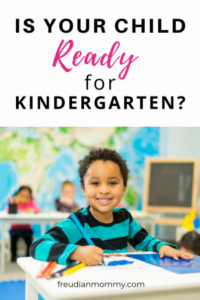
I, too, was a nervous wreck when it was time to send my daughter to kindergarten. I thought I was doing the right things to help prep her. I was teaching her the basic educational skills I thought she needed to be successful. But looking back, I focused on all the wrong things.
I should have been more focused on helping her hone in on her life skills, and teaching her how to function without me rather than mainly focusing on the educational part of the preparation process.
But being a parent is a learning experience, and now that I know better, I will do better next time and focus more on these important things that I am going to share with you comes time to prepare my other two children for kindergarten so that they may have an easier and more independent transition into kindergarten.
*This post contains affiliate links, at no additional cost to you I am compensated if you purchase after clicking on the links.
Here are 12 I think are worth doing when preparing your child for kindergarten. These to-do’s are not necessarily skills you have to teach, but are things that you should do to better prepare your child for
12 Things To Do With Your Child In Preparation For Kindergarten
1) Start talking about school:
It is important to start talking about school so that your child has an understanding of what school is, how school works, and why they need to go to school.
Explain to them that when it’s time to go to school, they will be away from Mom and Dad for a little while but that you will always be back to get them and bring them home.
Talking about how excited you are for them to start school so that they can meet their new teacher and make new friends. Excitingly talking about school will also get your child excited about starting school and give them something to look forward to.
Try to talk through the process of what school will be like so they know what to expect.
2) Read books about starting school:
Start reading books about school weeks and even months leading up to your child starting kindergarten. Reading books about what school will be like can teach your child new and more information about the topic beyond what you have already taught them.
Reading also helps your child to learn more about what school is like through the lens of others via storytelling.
Similarly, reading makes going to school seem fun, which it will be at this age!
3) Teach them how to be independent:
As parents preparing our children for kindergarten, it’s easy to think that the most important thing to focus on is the educational component. And yes, teaching your child basic educational skills such as number and letter recognition and reading is very important. However, you want to focus more so on teaching your child how to be independent and how to function without you when they are in school.
That means, if you are a parent, the kind of parent who is used to doing everything for their child, it’s time that you stop and allow them the opportunity to do things for themselves.
It’s important to start letting your kids do things for themselves early in their development because the more they practice doing things for themselves, the more confident they become.
Correspondingly, part of teaching your child how to be independent is teaching them how to play independently.
Explain to them how in kindergarten, there may not always be one-on-one contact between them and their teacher and your child. Help them to feel comfortable doing things on their own as they are going to be a lot of other kids seeking the teacher’s help.
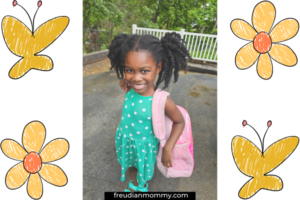
4) Teach Basic them basic life skills:
Teach your child basic life skills they will need to thrive in kindergarten. Your kids knowing how to perform simple life skills tasks is more important than academic skills.
The kindergarten classroom normally consists of 20-25 kids with one teacher and a teacher’s assistant. Make sure you teach your child how to put on their coat, gloves, mittens, and hats, and how to open everything in their lunch box so they won’t always have to wait around for their teacher to help them.
5) Identifying body parts:
Help your child learn how to identify their parts. This helps them to be aware of their body which gives them the proficiency to identify which part of their body hurts if they were to ever be in pain.
Your child being able to identify their body parts is a great way to help them set up boundaries. Talk to them about their private areas using the terms penis and vagina, and highlight how it’s private and that no one should touch them in those areas.
This will also give you a great opportunity to talk about healthy and unhealthy touching. Such knowledge can help protect your child from abuse.
6) Academic skills:
I am sure you have been doing this since the toddler stage but expose your kids to letters, numbers, and colors. They should know how to count from 1-10, be able to identify the primary colors and know the alphabet without singing it. Your child should also know how to recognize different shapes.
7) How to spell and identify their name:
Teach your child to recognize their full name and how to spell it with capital and lowercase letters. It is equally important to teach them their phone number, address, the town they live in, and birthday.
8) Improve fine motor skills:
Teach your child how to hold a pencil and scissors correctly and safely. The more they practice using a pencil and scissors at home before starting kindergarten, the less sore their little fingers will be when they start to use those tools in the classroom.
9) Encourage social skills:
If your child is not used to being around a lot of kids, start introducing them to other kids so that they are now overwhelmed in the first couple of weeks of kindergarten. Take them to a playgroup or the park to start interacting with other children.
10) Teach them how to take turns:
When kids are not used to sharing, it can be challenging and cause temper tantrums. Model sharing behaviors with your child at home and teach them how to take turns.
If they don’t have siblings, go on playdates with cousins and friends and encourage activities that promote sharing and taking turns.
While you are teaching about taking turns, also practice talking turns, listening, and talking. And start practicing the idea of raising their hands when they have something to say and waiting to be called on by the teacher.
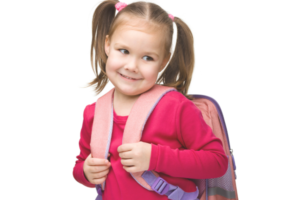
11) Help them express themselves:
Children, especially at this age can have a difficult time expressing themselves verbally. It’s important to teach your child how to express themselves when they feel like their boundaries have been crossed or when they dislike something.
And because they may not always have the proper vocabulary to express how they feel, provide them with a handful of words they can use to express themselves when one of their peers does something they don’t like.
Phrases to teach your kids:
“No thank you.”
“I don’t like that.”
“I am still using this toy.”
“Please stop.”
12) Establish a morning and nighttime routine:
Again, I am sure you have already been doing this with your little one, but months before starting kindergarten, make sure your child has a consistent morning and nighttime routine.
A productive and predictable morning routine can reduce stress for your child and help them to feel confident and in control of their day. I believe in morning and nighttime routines so much that I created a visual reminder for my kids, especially my daughter, a first grader. Grab your copy in my Etsy shop.
Final words Preparing For Kindergarten
To help alleviate some of the anxiety your child may be feeling, involve them in the process of preparing for kindergarten. Visit the school they will be attending a few weeks before they start school. And play on the playground a few times before school starts to get them used to being around the school.
But most important, establish an after-school routine to help them wind down after a long day. Make sure when they get home you focus on connecting with them and playing.
Play plays a huge part in how kindergartners learn, making certain that the main focus and top priority when they get home is just that.
And finally, make preparing for school fun! Get your child excited by including them in the preparation activities like back-to-school shopping. Allow them to choose their own backpacks and school supplies.
And be sure to answer any additional questions your child may have to help their transition into kindergarten be a little smoother.
Related articles:
A Productive Morning Routine Chart For Kids
Preparing For Kindergarten: 12 Non-Academic Skills To Teach Your Child For An Easy Transition To Kindergarten

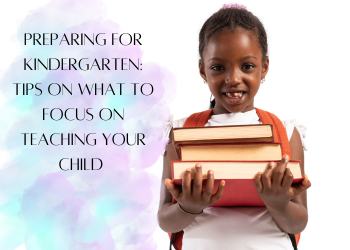
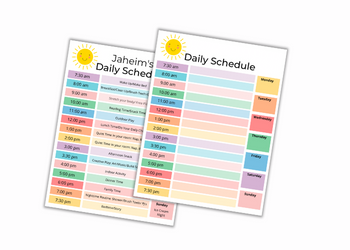


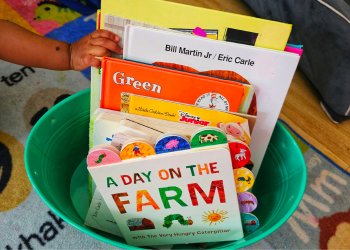
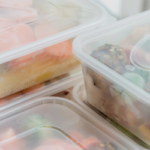
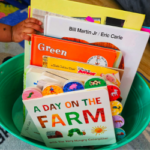
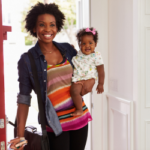





Good info. I’m a homeschool mom however, I can still use some of these tips. I’m prepping one for kindergarten as right now.
This is a great and concise guide that I think . I’m fortunate that my mother and grandmother were educators who prepared me well for Kindergarten, and provided me with ample opportunities to develop motor and social skills prior to entering into academic life. As an arts educator, I would say that this is where early exposure to arts and culture can pay great dividends too, as the arts help young children to build strong motor skills and learn to express themselves both verbally and non-verbally.
Yes to all of this! Also teach independence in bathroom and don’t send them in things they can’t button/unbutton by themselves. This creates so much anxiety for students and causes avoidable accidents. Make sure they know their real name and will answer to it not “booger” “monkeybutt”, etc. Practice 20 minutes lunch because that is STRESSFUL to children especially those who are used to being able to graze all day. Most importantly teach them to be kind. School should be a positive experience for all.
I really appreciate how you bring up the crucial topic of children understanding their private parts. In today’s world, where some unscrupulous individuals might try to exploit innocent kids, it’s absolutely essential for them to be aware of what abuse is and to never stay silent about it. It’s our responsibility to ensure they have the knowledge and confidence to protect themselves and speak up if something isn’t right. Let’s continue raising awareness about this important issue and keeping our children safe!
These are really solid tips for preparing for kindergarten. I especially like the idea to visit the school they will be attending a few weeks before they start school. This is great!
So helpful! My son is four and has a summer birthday so next year we will be making the decision on whether or not to start kindergarten. Thanks for the insight!
These are really good tips on preparing your children! I don’t have children yet but will reference this when I do! 🙂
Such great tips on teaching your kiddos when they are going off to school! I really liked the part of spelling and identifying their name. Such an important first skill.
Your article about how to prepare your child for kindergarten is perfect timing because my daughter is starting kindergarten in about 3 weeks! All of your tips are super helpful.
I couldn’t agree more with this post! My son just started kindergarten. It’s already a tough transition. If you don’t prepare them, they are going to struggle even more.
Great post!
Wonderful article! You can feel the love you have for your children, and it’s so beautiful! Great insight, Mommy! Keep on doing what you’re going!
I find that teaching kids their parents’ names and home addresses are also important! So that in case smth happens, there’s always a way to find home. Helpful post! Thanks!!!
As a former daycare center owner, everything you shared is so important. Children need to be prepared to spend time away from parents and meeting new people.
Wow great post! My daughter is going to kindergarten this year! This post is really helpful and so many great tips on what to focus on!!
These are wonderful tips. It is helpful for the children to open milk cartons and other food packages independently, as the lunch monitors have their work cut out for them during the Kindergarten lunch period! Also, if you get the school supply list over the summer, stick to the items on the list, as the teachers know what items are truly needed and/or will fit in the space each child is provided. I’ve seen some near-tears from my 5th graders when they realize all the extra supplies they bought won’t fit in their desks, so I can imagine how the little ones would react if this happened to them.